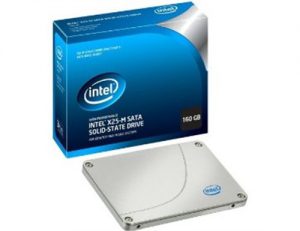 Solid-state hard drive (SSD)
Solid-state hard drive (SSD)
Installing RAM (random access memory) has always been known as an easy way to boost your system’s performance.
SSDs (solid state drives) on the other hand, are now much more affordable and a laptop upgrade and computer upgrade of your hard drive to an SSD drive has become an even easier way to maximise your computer’s performance.
benefits of solid state drives
You may be wondering why SSDs are all the ‘rage’. What makes them superior?
The benefits of a laptop upgrade or computer upgrade to an SSD are numerous, the major one being the increased performance for ‘read access’, and it is this that interests most people. Other benefits are listed below:
- Unlike traditional hard drives, SSDs have no movable parts and are, therefore, better in handling ‘drops’ and ‘knocks’.
- SSDs tend to be more power efficient, and often they can increase the battery life of laptops and netbooks.
- SSDs are usually more lightweight than traditional hard drives which in turn mean lighter products.
- SSDs operate more quietly than traditional hard drives and, because they have no moving parts, generate less heat and tend to have longer life spans.
performance
The areas, in terms of performance, where SSDs really shine are most noticeable when launching applications, booting up and shutting down your computer. A laptop upgrade and computer upgrade to an SSD makes your computer/laptop feel twice as fast when performing these operations.
A laptop upgrade and computer upgrade to an SSD makes computing an invariably more enjoyable experience, especially if you, like most people, find yourself impatiently tapping your fingers every time the computer starts up or an application loads.
Intel’s X-25M Solid-State Drive
Intel has spent years perfecting and optimising their SSDs and are definitely one of the leaders in the SSD industry.
The Intel X-25M is, in particular, a top-of-the-line SSD in the mobility space.
Although not a first generation device, on paper the Intel X-25M advertises ‘read speeds’ of up to 250 MB/s and ‘write speeds’ up to 70 MB/s.